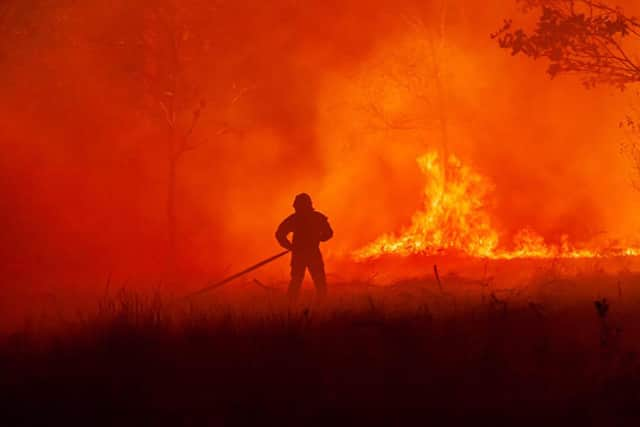Climate change: UK persists with crazy idea it can tackle global warming and produce more oil – Dr Richard Dixon
Last week the UK Government released 44 climate and energy documents, including a revised version of their plan to deliver on climate targets. This was forced on them by last year’s High Court ruling that their climate plan was unlawful because it did not contain enough information to show how targets would be met, and, as a result, the minister responsible should not have signed it off.
The Carbon Budget Delivery Plan is the revision of the previous Net Zero Strategy and does indeed contain more information on the impact of policies across all sectors. All of which shows quite clearly that the UK will not meet its international obligation to reduce emissions by 68 per cent by 2030 from 1990 levels, with plans showing how to deliver only 92 per cent of the necessary reductions. Even then they include big assumptions about unproven technologies removing carbon dioxide emissions and locking away the carbon.
Advertisement
Hide AdAdvertisement
Hide AdThe legal case was the result of three legal challenges brought by ClientEarth, Friends of the Earth England, Wales and Northern Ireland, the Good Law Project, and the climate campaigner Jo Wheatley. A similar challenge could be mounted in Scotland, where the current Climate Change Plan Update again does not contain enough information to show that the plans actually add up to delivering the targets.
The recent United Nations report on climate science prompted the UN Secretary-General to call on developed nations to reduce emissions to zero as soon after 2040 as possible. The revised UK plan is still aiming for net-zero by 2050, Scotland’s target is 2045.
The energy part of the announcements demonstrated continued support for new oil and gas developments, despite new analysis showing that just one proposed development – Rosebank – would blow the UK’s carbon budget. The aim is still to maximise production and 115 new bids are being considered.
There was, of course, continued support for the most unsustainable and more expensive form of energy production – nuclear power, although this was mostly in the form of things which have been said before and there was no new money promised. The new body, Great British Nuclear, gets a mention again but there’s no new detail on how it will operate or how state support for new nuclear reactors will be funded. It will launch a competition to select designs for ‘small’ modular reactors. Hopefully, it will be like the government competition in 2016 that produced little practical result and certainly no reactors.
There was extra support for industry’s get-out-of-jail-free option of carbon capture and storage, but still no money for the one Scottish proposal, the Acorn Project near Peterhead.


Perhaps most disappointing of all, the energy plans continue to ignore one of the first things we should do, which is to make people’s homes more energy efficient. There is to be yet another consultation and a task force but no actual action.
Sadly, UK climate and energy policy continues the crazy idea that you can have more oil AND be serious about climate change.
Dr Richard Dixon is an environmental campaigner and consultant
Comments
Want to join the conversation? Please or to comment on this article.